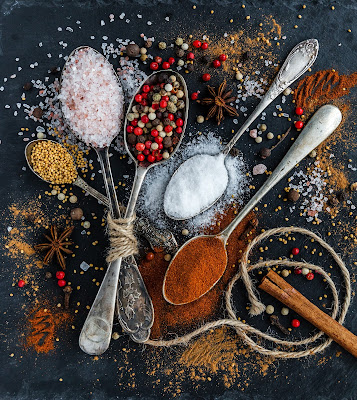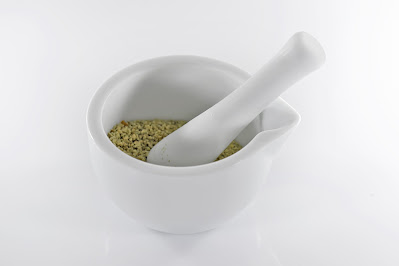Turmeric: Contains curcumin, a potent anti-inflammatory compound that inhibits various inflammatory pathways.
Ginger: Has gingerol, which possesses anti-inflammatory and antioxidant effects.
Cinnamon: Helps reduce inflammation and stabilize blood sugar levels.
Clove: Contains eugenol, a compound known for its anti-inflammatory properties.
Garlic: Contains sulfur compounds that have anti-inflammatory effects.
Cayenne pepper: Contains capsaicin, which has anti-inflammatory and pain-relieving properties.
Black pepper: Contains piperine, which enhances the absorption and effectiveness of other anti-inflammatory compounds.
Coriander: Rich in antioxidants and compounds that have anti-inflammatory benefits.
Cardamom: Contains compounds with anti-inflammatory and antioxidant effects.
Cumin: Possesses anti-inflammatory properties and aids digestion.
Fenugreek: Contains compounds that have anti-inflammatory and antioxidant effects.
Rosemary: Contains rosmarinic acid, which has anti-inflammatory properties.
Thyme: Contains thymol, a compound with anti-inflammatory properties.
Sage: Has anti-inflammatory and antioxidant effects.
Oregano: Rich in antioxidants and compounds that have anti-inflammatory benefits.
Nutmeg: Contains compounds with anti-inflammatory and analgesic properties.
Turmeric: Contains curcumin, a potent anti-inflammatory compound that inhibits various inflammatory pathways.
Mustard seed: Contains compounds with anti-inflammatory and pain-relieving properties.
Paprika: Rich in antioxidants and compounds that have anti-inflammatory benefits.
Saffron: Contains crocin and safranal, which possess anti-inflammatory effects.
These spices can be incorporated into various dishes, beverages, or consumed as herbal teas. However, it's important to remember that these spices should be used as part of a balanced diet and healthy lifestyle. If you have chronic inflammation or a specific medical condition, it's advisable to consult with a healthcare professional or a registered dietitian for personalized guidance.


